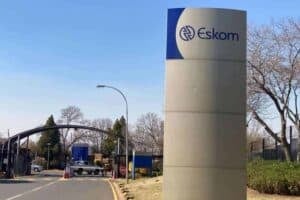There is an apparent lack of political will to realise the potential of a large IPP industry for the economy and the public, politicians say.

Now that load shedding looks set to be here to stay for the foreseeable future, politicians have highlighted the urgency of opening up the generation industry to independent power producers (IPPs).
Power utility Eskom’s new CEO Andre de Ruyter told journalists at a media briefing yesterday that load shedding was unavoidable as the entity could no longer afford to push back planned maintenance on its ailing and aging infrastructure.
With power stations experiencing an “unprecedented” number of unplanned breakdowns, exceeding the 9,000MW threshold to avert a grid collapse, dark days were ahead.
“It’s very important for us to convey to the South African public that we are extremely scrupulous when it comes to the imposition of load shedding its not a decision that we take lightly. It’s not a decision that we take easily. I am personally involved in every decision to impose load shedding,” said De Ruyter.
“But we cannot avoid it given the state of the system where we are right now. Our system is constrained, it’s unreliable and it’s unpredictable and it is prone to unplanned outages.”
Democratic Alliance shadow minister for public enterprises, Galeb Cachalia, said this was a sign that dissolving the monopoly Eskom had in the energy generation market was urgent and would ease the pressure on the grid.
He added that more transparency was needed in the entity when it came to the supply chain from power stations to municipalities in order for South Africans to be assured that De Ruyter’s promise of a total overhaul in tackling corruption and maladministion was realised.
“We are not doubting De Ruyter’s integrity, but we have to ask, what tangible assurance do you have that you will be successful in this endevour, unlike your predecessors?” asked Cachalia. “What he is saying has been said for the umpteenth time, that he will fix things and he can be trusted.”
Last week De Ruyter said accommodating IPPs into the national grid would require substantial investment amounting to about R18 billion.
But he added private producers would ease the pressure on Eskom and allow it time to carry out more maintenance on its aging infrastructure.
Private capital buy-in was essential to this end, given Eskom’s financial constraints.
Dr Wynand Boshoff, Freedom Front Plus MP and spokesperson for mineral resources and energy, said despite the astronomical benefits a larger IPP industry would have on the economy, there was an apparent lack of political will to realise its potential.
“It seems they prefer to maintain the monopoly they have as a power producer even though they can’t meet the demand. It is unexplainable why minister after minister has tried to delay the option of IPPs,” said Boshoff.
“The president has made a turnaround and says he is for IPPs – what we refer to as consumer-producers which include big and small shopping malls, homes, farms and factories.
“All of these places can have solar panels allowing them to produce their own electricity and even give the surplus back to the grid.”
For more news your way, download The Citizen’s app for iOS and Android.






